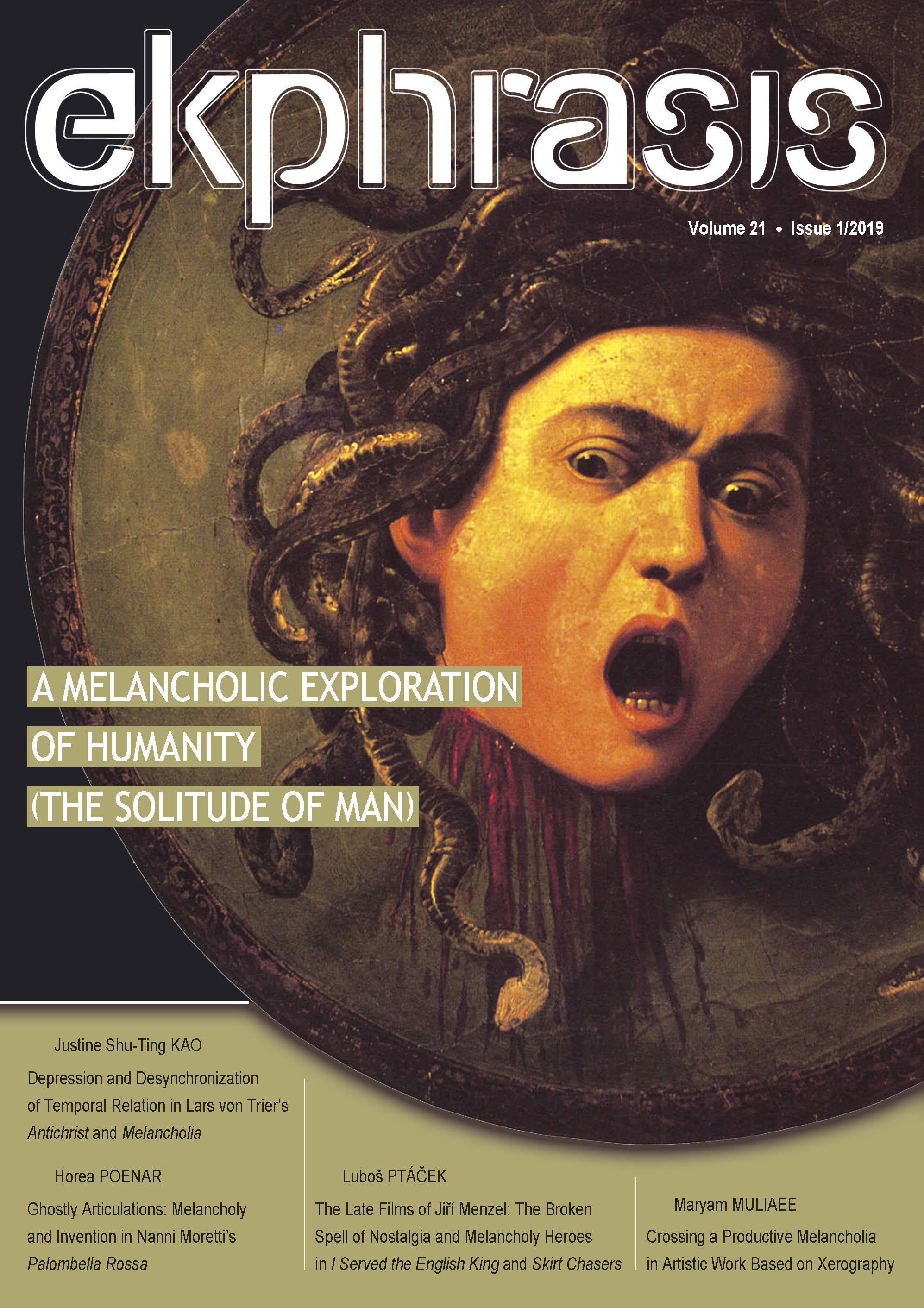Depression and Desynchronization of Temporal Relation in Lars von Trier’s Antichrist and Melancholia
Depression and Desynchronization of Temporal Relation in Lars von Trier’s Antichrist and Melancholia
Author(s): Justine Shu-Ting KaoSubject(s): Fine Arts / Performing Arts, Film / Cinema / Cinematography
Published by: Universitatea Babeş-Bolyai, Facultatea de Teatru si Televiziune
Keywords: rift; depression; desynchronization; daimones; Lars von Trier;
Summary/Abstract: This article aims to apply Thomas Fuchs’ “Psychopathology of Interpersonal Time” to Lars von Trier’s films Antichrist and Melancholia. Fuchs examines melancholia in patients with depression resulting from a desynchronization of inner time and common/social time. To successfully restore mental health, an organism thus has to readapt to the socially accepted course of time. My article proposes the debunking of outside/common/social time as a container that accumulates the evilness of humanity, against which the heroines in von Trier’s Antichrist and Melancholia resist, and thus the desynchronization or “inhibition of inner time” ensues. Overall, the heroines of both films are conscious of this desynchronization (which is embodied as “rift,” a technique in the two films used to deal with the relationship between time and depression) and strive for resynchronization, though not with socially acceptable standards of time which teem with the evil of humanity. In the two films, von Trier rescues depression from a totalizing psychiatric or psychological framework, and he somewhat incorporates it into the force of Nature that overwhelms man’s evil. Depression either enhances a force of resistance or brings tranquility as it draws one downward to encounter one’s soul, which in Hillman’s terms refers to “the images of daimones.” Though the two films take different turns, both heroines reimagine liberation in their new/inner time.
Journal: Ekphrasis. Images, Cinema, Theory, Media
- Issue Year: 21/2019
- Issue No: 1
- Page Range: 109-122
- Page Count: 23
- Language: English

